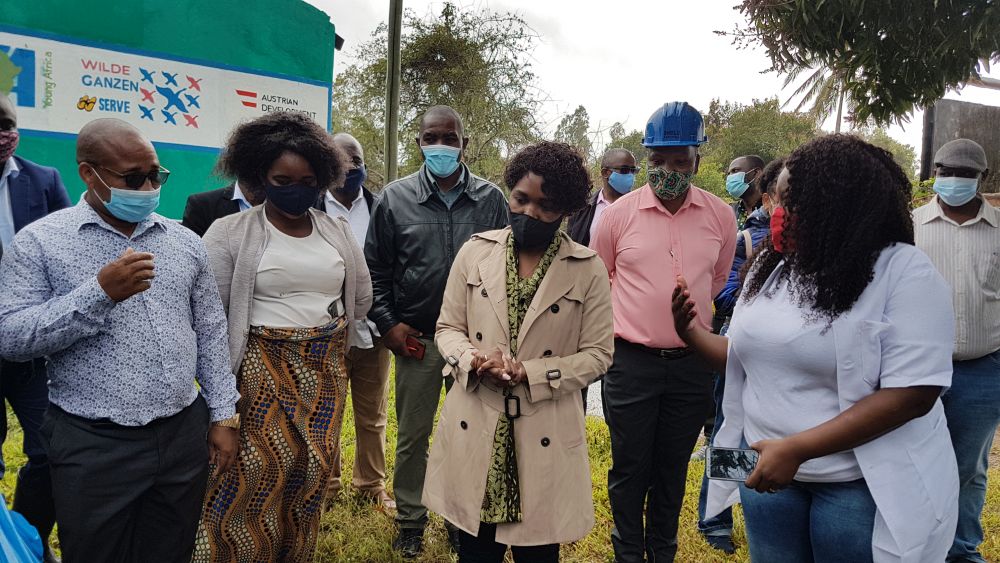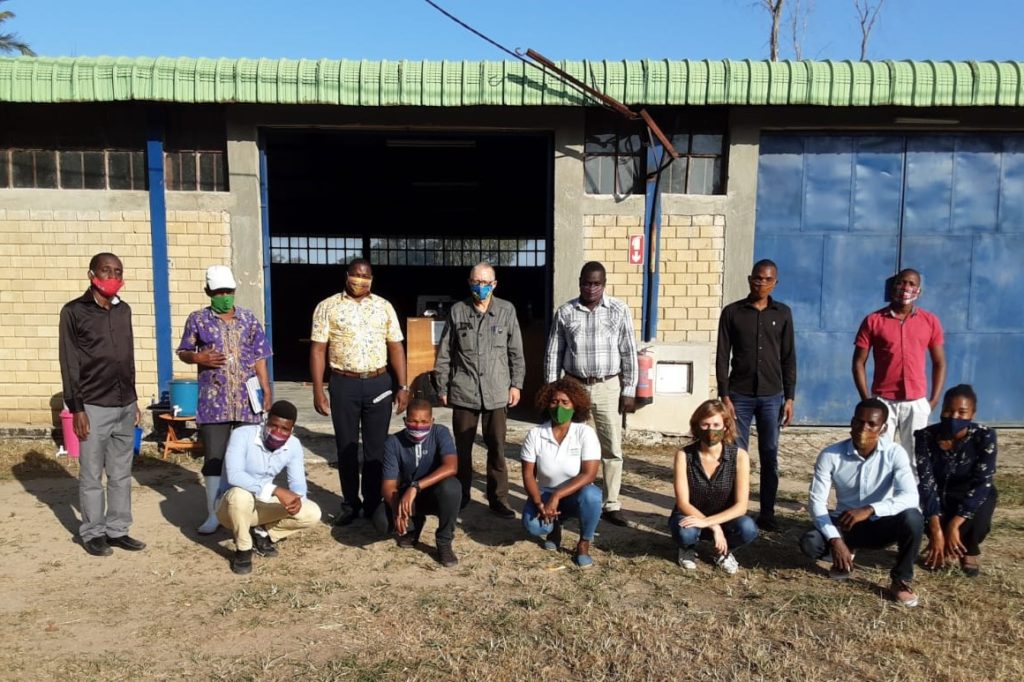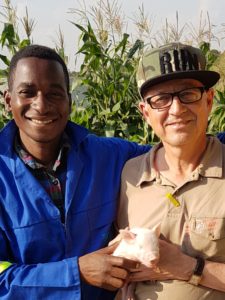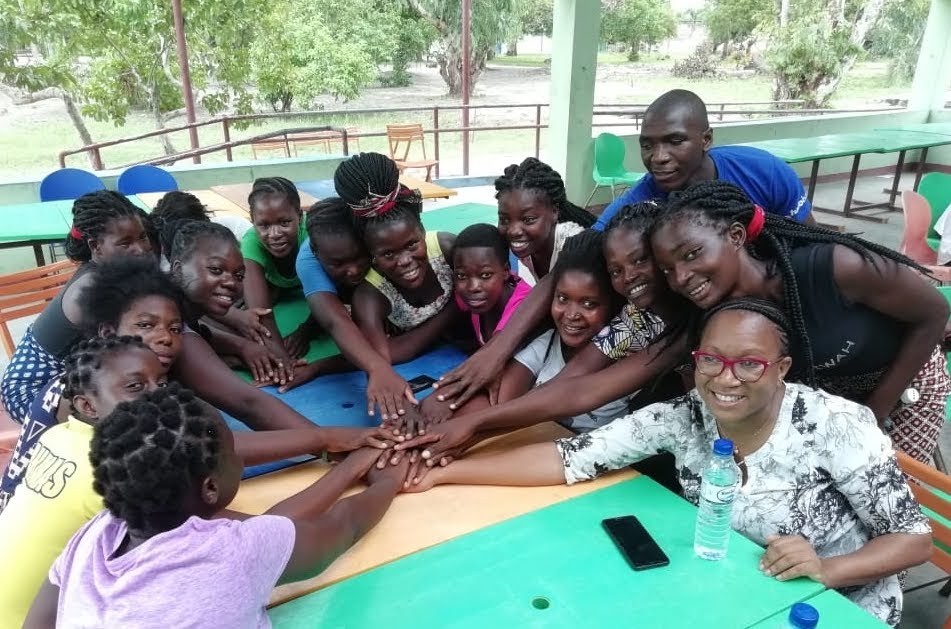Make Your Experiences Count. They Can Change the World.
LET’S BRING ALL OF OUR KNOWLEDGE AND EXPERIENCES TOGETHER.
TOGETHER WE KNOW MORE. TOGETHER WE ACHIEVE MORE. TOGETHER WE DO BETTER.
LET’S BRING ALL OF OUR KNOWLEDGE AND EXPERIENCES TOGETHER.
TOGETHER WE KNOW MORE. TOGETHER WE ACHIEVE MORE. TOGETHER WE DO BETTER.
Published: September 15, 2020
The Knowledge Management team is always busy trying to make knowledge transfers possible and easier between members of our community. Recently, Peter Tantius, Technical Advisor (TA) in Mozambique, has supported our intentions often. He got in touch with us in order to share several documents that he thought might be of benefit for other projects as well – and we thought so too. That’s the reason why we have uploaded them on the platform (click here for the experience “Growing Tomatoes on Contaminated Soils“, here for the “Manual on Poultry Value Chains” and here for the article on “Soil Conservation and Evaluation in Mozambique“) and asked him, whether he would take the time to have a chat about his work as a TA at Young Africa Agri-Tech Centre with us. Read all about what he had to tell us about his interesting projects below.

You are working with our Partner Organisation Young Africa in Mozambique for over a year now. Could you tell us a bit about the organisation and its projects?
YA Agri-Tech Centre (YAAT) is part of Young Africa Mozambique and was created in 2014. It is dedicated to train disadvantaged youths in farming and rural development, offering technical and vocational training on a 200-hectare farm. We are located in Sofala, Mozambique about 6 km from Dondo and 36 km from Beira.
Agricultural activities carried out here include the production of crops and various horticultural produce, some grown in greenhouses or hydroponics, some in fields, as well as raising cattle, broilers and pigs. We have a Jersey dairy herd, aviaries, pigsties and a dam as a water source for irrigation. Since 2018 we have a dairy processing unit (maximum capacity 2,400 litres) producing pasteurized milk as well as yogurt, butter and cream as well as some fruit juice. We also produce bricks and operate two small mills for grinding maize.
The Centre has 14 classrooms and a total capacity for 420 students. In addition, there is a kitchen and a simple dining facility for the students. Currently, we have 337 enrolled students, 164 of whom take agricultural and livestock courses (48.6%), 93 do our electrical installation course (27.6%) and the remaining 80 take civil construction or computer courses (23.7%). The courses have a duration of one year, except for civil construction, which takes six months. 168 students live on the farm in the hostel.
YAAT has 31 permanent workers, 22 male (71%) and 9 female (29%) and one advisor from HORIZONT3000 supported by the Austrian Development Agency (ADA). Our team at the moment also consists of nine trainers, four franchisees (two for the agribusiness, one for civil construction and one for electricity). Since its creation in 2014, 1,286 students (695 male and 591 female) have graduated from the Centre.

What has your experience as a Technical Advisor been like so far?
My experience here at Young Africa Agri-Tech has been very interesting so far, it is a nice place to work and I get on well with the staff and management. There is much to do here as we had some major setbacks in 2019 and 2020. The cyclone damage of March 2019 was considerable and has not yet been completely overcome due to financial constraints. Many buildings have been damaged or destroyed and my “office” is still located in a large storage hall; mosquitos, cockroaches, fleas, mice, rats and cats visit us frequently here. The temperatures can reach up to 45 °C in here during summer due to the large metal roof.
This year, the main challenge is the Covid-19 pandemic. The school has been closed, teaching and hostel staff as well as farm labour had to be reduced, as donor funding has slowed down and tuition fees from absent students cannot be charged. Student labour was also a major input of our farm production.
It took me a while to get used to the myriad of mosquitos (this is a very swampy area) to avoid malaria. The frequent and unexpected stones found in the local food, which have already severely damaged some of my teeth encouraged me to prepare my own lunch box as skilled dentists are hard to find here. Also, the frequent water and power cuts are something to get used to, you need to prepare alternative solutions such as a few filled buckets and drums, rechargeable lights and batteries. Power can surge back strongly and burn your chargers, mobiles and PCs, which has already caused me some expensive damage, thus a stabilizer is very important. Transport here in Dondo is mainly by kamikaze style motorcycle taxis or small minibuses with 20 passengers crammed in for larger stretches such as shopping trips to Beira. This said, Covid-19 style social distancing is not possible here and very few people use masks in Dondo except for warming their necks.
I have been working here for 15 months now and I have not regretted coming to Mozambique. It is a nice, warm and friendly country, quite safe compared to many other African destinations apart from a few rebel attacks in our area and a small civil war and ISIS style beheadings in the North (Cabo Delgado). Here in Dondo I feel very safe and one can also go out at night without having to worry too much.

What are your fields of work in the organisation? Is there a certain project you are mainly occupied with or do you participate in several? Could you tell us a bit about them?
My work mainly consists in advising the Centre and farm management and helping to increase agricultural production. While we have specific projects, I am also involved in the regular daily activities here.
I usually start the day by inspecting the farm, which is best done in the cooler morning hours. I try to spot problems and see how things are going. This requires a lot of walking around, as we have a 200-hectare farm, part of which is flooded for several months each year.
Looking out for plant diseases or pests in our crops, identifying them and then assististing in controling them, is something I collaborate with as well. I also check the fields for problems with irrigation, drainage, soil fertility, bush fires and their damage, breakdowns of installations, tractors or water and irrigation systems. Problems with sick or dead pigs, cows and chicken also need to be monitored or investigated. Sometimes hyaena enter the corral at night and they have already killed five calves during my stay here. Some pigs died from disease, electrocution and poisoning.
We also have parasite problems, mainly tick, worms and flies as well as Bilharzia in most of the water. Checking for proper feeding, grazing and watering of animals, greenhouses, plastic tunnels and hydroponic operation as well as seedbeds, is another recurring task. Together with the farm manager we decide which crops to plant in specific fields, depending on availability of inputs, season, crop rotation, weeds, soil fertility etc. I talk to farm labourers or students in the field and enquire about the problems they encounter and also visit smallholders in the vicinity. This requires long marches as I have no transport apart from a bicycle, which is useless in the predominantly swampy rice fields.
From time to time, research on new ideas or projects is required – such as the planned expansion of our milk processing output, to establish a milk quality laboratory (an ongoing issue) and investigate where to obtain the needed equipment. We are currently looking into the introducing of egg production and construction of a hen house, cassava cultivation and processing. There was a possibility of establishing some fruit tree plantations on some parts of the farm, but due to frequent water logging we did not go through with it. I also got involved in some aspects of sales, especially speeding up and improving the current process as clients found it too slow. I sometimes have to step in and check weight, negotiate and record prices of pigs or produce to be sold, if some employees are absent.

YAAT-agronomy students giving feedback to EU delegates visiting the center
Together with the centre manager and the farm manager, we discuss new ideas or developments on a weekly basis. Certainly there are other important meetings or conferences as well as graduation ceremonies and awards to attend.
Not to forget, liaising with state ministries, local governmental entities but also international donors, are on my to-do list as well. Shortly ago, the Austrian ambassador, accompanied by the director of the Mozambican ADA-Coordination Office, came over and they were introduced to the different production sectors of the training centre. The various meetings resulted in ideas for further cooperations. At another occasion, I spent a day with GIZ visitors, who interviewed our students and got to know the farm.
Currently, we run a COVID-19 response program supported by the embassy of the Netherlands, which is administered by Young Africa. My collaboration includes the registration of beneficiaries of the humanitarian food aid, which we distribute at the YAAT Centre. If needed, I assist with checking the activities of the kitchen and the food quality as we also provide a daily lunch for 100 students and family members of the local community. Finally, I offer farm tours for potential new students.
I have also been able to start our long overdue strategic planning by undertaking a SWOT Analysis of YAAT. I handed it over to the new centre manager, who has developed it further and came up with a detailed plan.
Last but not least I also do lengthy translations of Portuguese language documents into English as well as documenting visits and events by taking photos to later publish in our WhatsApp group or on the website and I contribute relevant material about security, health, travel or political issues in Mozambique to the HORIZONT3000 and YA WhatsApp groups.
Is there a certain technical topic, which currently requires your attention? If yes, which one and why?
I am currently investigating if and how we can process our chickens rather than sell all of them alive here on the farm, which limits production. This required careful study because there are some technical, hygienic, financial, marketing and legal hurdles to overcome. We could do this here on a small scale or we could set it up as a bigger operation, which would allow us to increase our production and to sell much larger numbers of birds. Big scale processing is not easy, very competitive and requires considerable capital and know-how. But even a small-scale operation would serve us to improve the training we can offer to our students by adding this important component.
Another current project, which is well advanced, is to establish an online library for the use of teachers and students. I have collected a lot of material, books and manuals in Portuguese and English for all aspects of tropical agriculture, farming, processing, building etc.
Is there anything else you would like to add?
We are currently still affected by the COVID-19 emergency measures. The agricultural school has been closed since March 2020, but we are preparing to open again in the near future. This requires a lot of preparation as we will have to pass a safety inspection, thus extra meetings and activities are taking place.